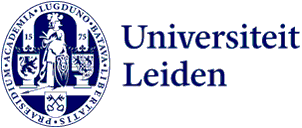
Alumnus teaching at a Texan university: pizza, guns and heated debate in the lecture theatre
Americans are electing a new president in November but they also have other choices to make in the polling booth. Alumnus Sanne Rijkhoff works at a Texas university and is trying to help make students more aware of the elections.
Every inch of public land on her way to work is crammed with signs telling her whom to vote for − and not just Harris or Trump. Because Americans will also cast their ballots for many offices at state and local levels on 5 November. ‘It can take some time for people to re-emerge from the polling booth. In Texas you also vote for the Senate, the City Council, the sheriff, the mayor, judges and the Railroad Commissioner’, says Rijkhoff. Confusingly, the latter has nothing to do with trains but is the Texan government agency that regulates the oil industry and mining. In total there are 35 different seats and legislative bills on the ballot.
Informing students about elections
These local elections, says Rijkhoff, who studied political science among other subjects in Leiden, are even more important than the presidential elections. Because decisions made by local elected officials will have a greater effect on Texans. ‘The elections are so overshadowed by the presidential election that everyone thinks that is what they are about, but Trump already looks set to win the votes of the Texan electoral college.’ Rijkhoff, who works at Texas A&M University – Corpus Christi, wanted to inform students about all the elections, so she started a programme: Islanders Vote.
She is proud of the programme: since its inception, the university’s student voting rate has risen from 36% in 2016 to over 50% in 2020. ‘That was a huge leap. We hope to carry on in the same vein this year.’

Politics and psychology
At Texas A&M, Rijkhoff is the expert on political behaviour and political psychology. Her fascination for the combination of politics and psychology stems from the start of her degree in 2001. ‘I did a project on Berlusconi in my first year. I thought it is strange how someone who for many people outside Italy was clearly not to be trusted could win so many votes regardless. I wondered why voters are driven by emotion.’
Her interest was further piqued by major events that happened during her studies: 9/11, the murder of Pim Fortuyn, the start of the war in Iraq and Obama being elected president of America. To learn more about psychology, she took the Master’s in Social and Organisational Psychology. She then left for America where she was awarded a grant for a PhD on political cynicism and its effect on democracy. Political cynicism is when individuals believe politicians to be incompetent, egotistical, immoral and unreliable.
Current affairs in class
After her PhD, Rijkhoff held various deputy and postdoc positions, which led to Texas A&M University – Corpus Christi, where she is now an associate professor. She conducts research and teaches about elections, politics, media, campaigns and public opinion. In Texas all students have to take two political science courses because they are often unfamiliar with how politics works in their country.
‘Those lessons have set elements to them but I also talk about current affairs. This means I can get students more involved in the elections. We watched the vice-presidential debate together, for example. Afterwards we looked objectively at what we had seen and heard rather than just saying whom we agreed with.’ And most students are not used to doing that.

Pizza and discussion
Alongside her teaching, she thinks it is important to be more broadly involved on campus. She therefore holds discussions that many students attend, sometimes because they have no choice. They discuss issues such as abortion, firearms and legalising marijuana. ‘These are all pretty contentious topics. We live close to the Mexican border and there is a clear division between students who are for and students who are against immigration. And most students here are pro-gun ownership. Some students in my class even have a gun in their bag. As long as they do not show them, they are obeying the law. That’s allowed here and is something I find difficult to get used to.’
Despite the controversial topics, she manages to get good discussions going among the students. And that is not something that usually happens, says Rijkhoff. ‘I notice that many students are afraid to speak out. Some admit afterwards that they came to the discussion for the pizza but became so inspired that they wanted to share their opinion. That’s the icing on the cake for me because it really shows how education can influence students and help them develop.’
Text: Dagmar Aarts
Photos: Texas A&M University - Corpus Christi
